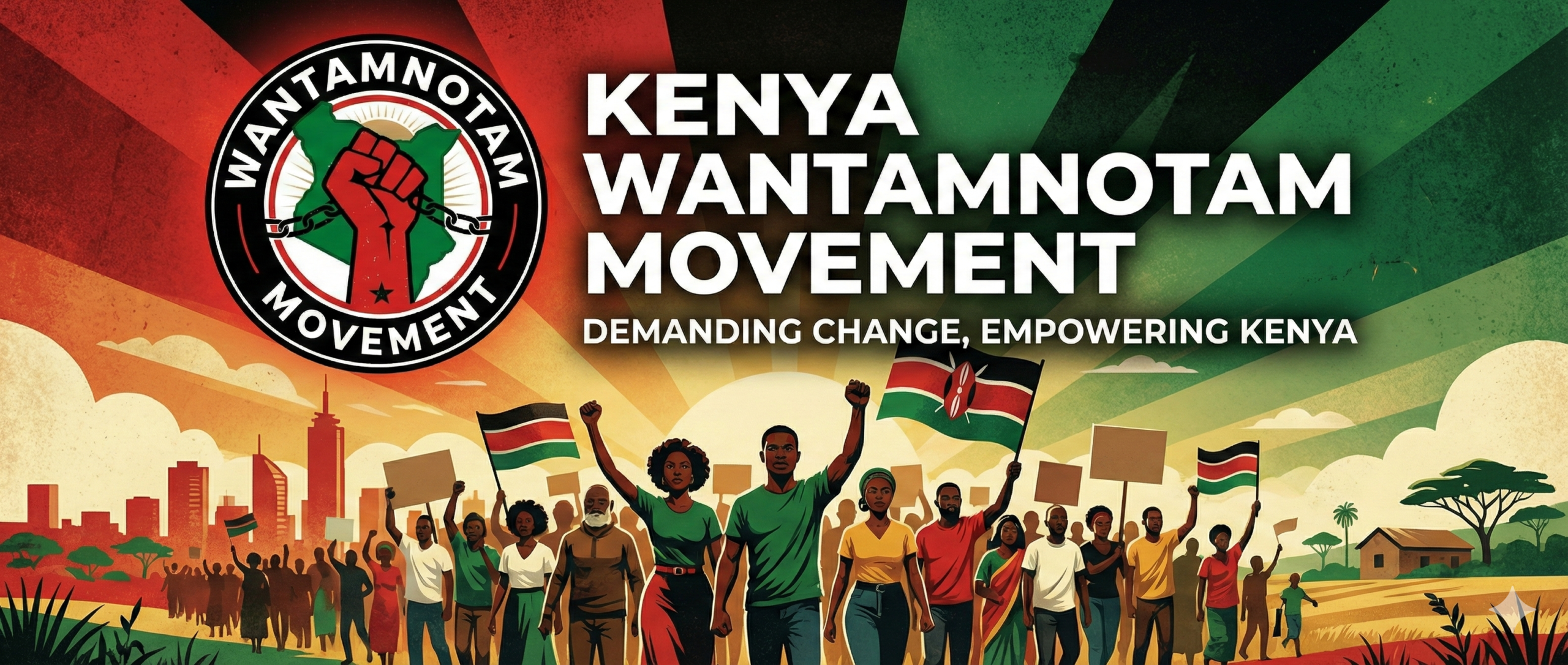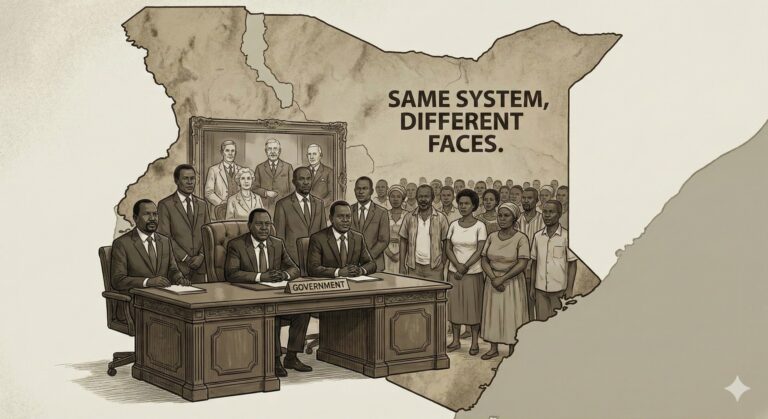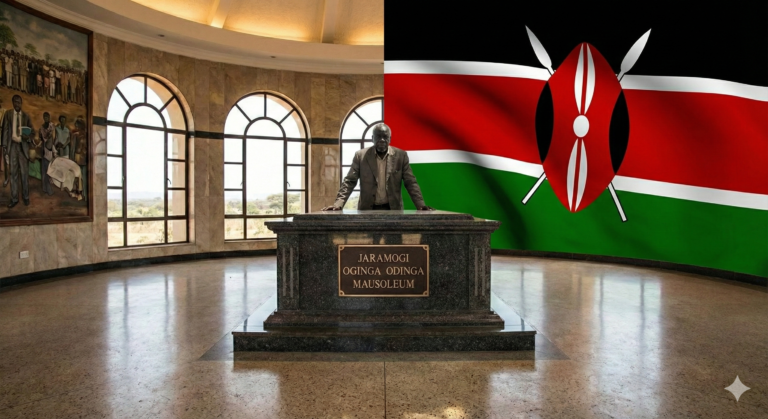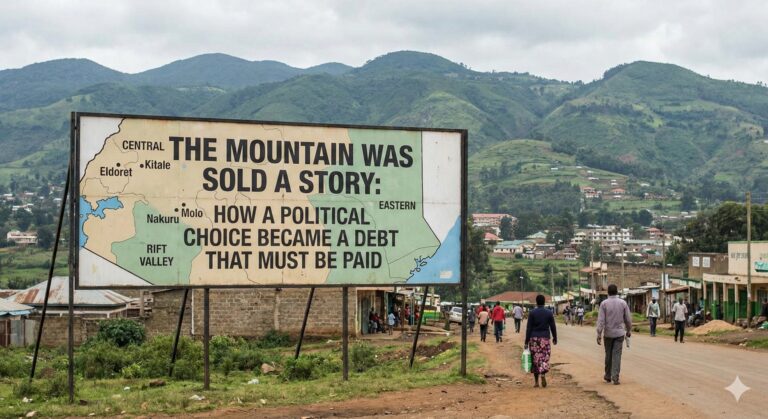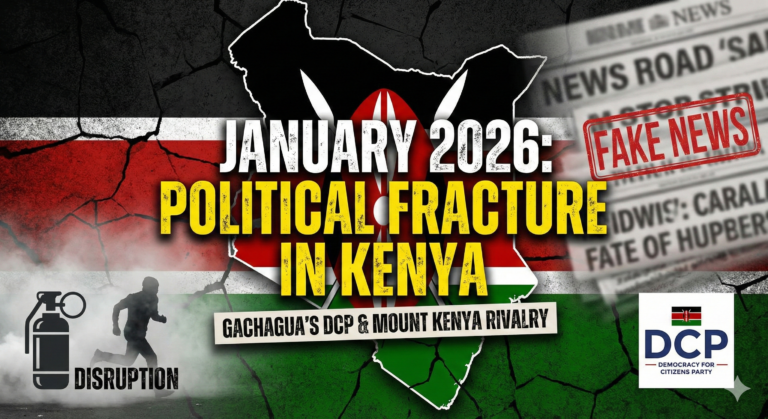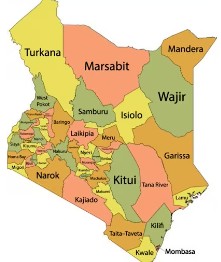
Kenya Wasn’t Freed in 1963. It Was Flipped for a Profit. The Real Liberation Is Happening Now—Quietly, Locally, and Without Politicians
1963 didn’t bring independence. It brought a swap. The British flag came down, but the theft never left. Government creameries funneled profits straight into Muthaiga mansions. Rural clinics died out. The number of Mercedes grew. Each new administration took power and inherited the same hunger.
Jomo Kenyatta grabbed his cut. Moi multiplied his. Kibaki formalized the game. Uhuru stayed loyal to the script. Now Ruto takes the wheel—and nothing changes. The faces rotate. The looting doesn’t.
Tribal Politics Is Just a Tool to Steal More—But Kenyans Have Had Enough
Politicians never built Kenya. They split it. Every election, they reshuffle tribal loyalties like a deck of cards—just to buy more time. They’ve made identity a tool for plunder. But no mama mboga eats identity. No boda boda rider feeds his family with tribe. Hunger doesn’t care where your ancestors were born.
Classrooms have collapsed. Blackboards are blank. Hope dried up in leaking roofs. But this time, something cracked. Youth refused to clap. They stopped reposting campaign slogans. They laughed off “digital economy” speeches and began demanding receipts.
Gen Z Isn’t Marching—They’re Building a New Economy Without the Government
Across counties, a silent trade revolution has begun. Youth and farmers stopped waiting for Nairobi to lead. They’re leading themselves. Rural entrepreneurs are trading directly—Murang’a to Makueni, Kisii to Turkana. No capital city needed. Just county-to-county business, powered by phones, not podiums.
Forget World Bank plans. Forget billion-shilling strategies. Villagers are using basic SMS apps at KSh20 a month to ask: Got maize? Need milk? Deal. No fancy dashboards—just working commerce.
The Next Revolution Is a Local Supply Chain Built by the People
Trade is happening outside the cameras, outside the speeches. When Nyamira sends avocados to Nakuru, small processors spin up. When Meru’s tea sells in Bomet, factories reopen. Cashew workshops rise in Tana River. These micro-industries fuel hospital bills, school fees, boda fuel. They grow where the raw materials are. They don’t ask for permission.
That’s how farmers stop being robbed. That’s how they start setting prices.
Get Government Out of the Way. Let Counties Trade and Keep the Profits
National government has failed for 60 years. It’s time for it to step aside. Let counties grow their own budgets—not by begging Treasury, but by earning it. Let trade create revenue. Let roads go where goods grow—not where politicians were born.
Change the rules. Allow farmers to sell freely across county borders. If Baringo grows enough onions, let Mandera stock from Baringo—not Uganda. If Kirinyaga has tea seedlings, let Embu grow them without needing Nairobi’s OK.
Cheap Credit. Simple Tools. Local Markets. That’s the Plan
Kenyan farmers don’t need billion-shilling loans. They need micro-credit tied to harvests—pay after sale, not before. Tea in June. Maize in December. Interest-free if paid on time. Let counties handle small, structured credit. Let local banks win.
Where’s the money coming from? Charge a micro-levy on exports. Each kilo of exported avocado pays for a mobile grader. Each bag of coffee funds a drying shed. Let every export build a local asset.
Let counties own the assets. Not third-party vultures.
Let the Politicians Cry Tribalism. Let the People Keep Trading
The political class still clings to tribal drums. Let them. The trucks roll anyway. And when kiosks are full, when goods arrive on time, tribalism dies. No one cares where you’re from when your mangoes are ripe, your pricing is fair, and your payments are clean.
Trade builds peace. Not dialogue teams. Not handshakes. But actual trade. Reliable, visible, fair.
Kenyan Brands Can Finally Be Kenyan-Owned—And County Proud
Factories follow farmers. Tea packaging plants. Avocado oil refineries. Cashew snack factories. Kenya is ready for brands like “Meru Harvest,” “Kandara Coffee,” “Turkana Crunch.” Let labels wear county names. Let profits return locally. That’s how real prosperity begins.
When counties profit, people stop caring about motorcades and ceremonies. They demand clinics, water taps, working garbage trucks. Not branded T-shirts and hollow pressers.
This Is Already Happening—Led by Youth, Built by Locals
Young Kenyans aren’t waiting for jobs. They’re creating them. They manage transport. Coordinate payments. Run driver cooperatives. Not government jobs—real jobs. They don’t need presidential “flags.” They need clean contracts and working weighing stations.
You don’t need a governor’s speech to build a milk hub. You need a dairy cow and a buyer. You don’t need a state dinner to open trade. You need a working phone and a good product.
Strip Graft of Its Power by Spreading Economic Activity Everywhere
You can’t kill corruption overnight. But you can shrink it. If one village loses money to a crooked deal, five others keep moving. When county revenue isn’t tied to the center, corruption has a harder time wrecking everything. Local trade creates resilience.
Quiet trade beats loud campaigns.
Skip Summits. Skip MOUs. Just Trade.
Forget chandeliers and ministerial retreats. Farmers already know what to do. If Siaya wants potatoes from Molo, they call. They send. They pay. Done.
Let food move faster than campaign promises. Let tomatoes beat speeches. Let trade win.
Tax Idle Land. Either Farm or Pay
Land is wasted when it’s idle. Counties must begin taxing unused land. Either use it—or lose profit. Vacant plots block progress. If you own land, prove it serves the economy—through crops or rent. That’s how counties grow.
Kenya Already Knows How to Grow. Just Give It Tools
Kenya doesn’t need foreign consultants to roast coffee or grow onions. Farmers already know how. What they lack is clean support: tarred roads, cheap loans, working markets. That’s it.
No more development plans with 90-page executive summaries. Just working silos. Just functional tractors.
The Real Action Is Not in Nairobi. It’s in Narok, Bungoma, Nyandarua
The future of Kenya’s economy lives in Narok’s wheat stores. In Bungoma’s dairy sheds. In Kakamega’s herb gardens. In Nyandarua’s milk trucks. Not at press briefings.
Let youth rent tractors via M-Pesa. Let them charge per acre. Let them build co-ops. Let them earn without state favors. Let them run agriculture like a business, not a campaign.
Export Begins in the Village, Not the Embassy
Want foreign markets? Start with better tomatoes. Then better packaging. Then export nuts. Then turn coffee beans into finished products. Not raw exports. Not giveaways. Not dependence.
Let counties label, can, pack, and ship. Let profits stay. Let factories rise.
The Real Growth Starts on Dirt Roads, Not Red Carpets
Kenya was conned in 1963. But cons don’t last forever. When farmers get paid fairly, the old gatekeepers lose power. When counties grow rich on their own terms, Nairobi becomes a sideshow.
And when that happens, no one will wait for a president to fix poverty. They’ll be too busy selling pineapples to Kigali. Too busy packing herbs for export. Too busy trading goat milk with Somalia.
WantAmNotAm Is Not a Slogan. It’s a Blueprint
This movement isn’t an election stunt. It’s not a manifesto. It’s a lifestyle. It’s how you spend. Who you buy from. Who you trade with. And most importantly—who you stop waiting for.
Kenya won’t rise because of a new administration. It’ll rise because its people stopped asking permission. And just started doing. One county, one market, one deal at a time.
CLICK HERE:Listen To WANTAMNOTAM PODCAST AND TAKE ACTION
